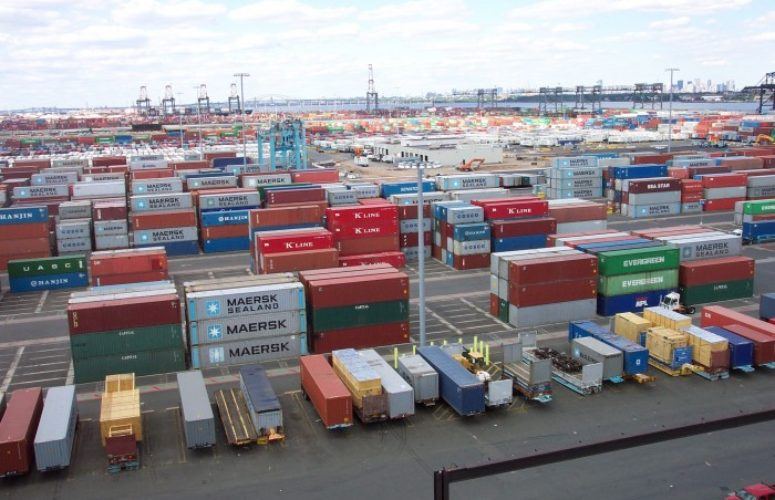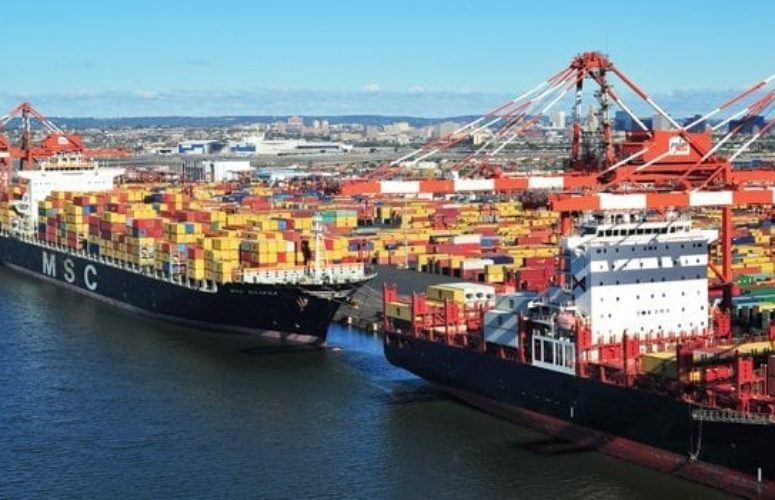
Port Authority Announces Funding Commitment to Replace Oldest Trucks Calling on Port of NY/NJ
On Jan 7, 2016The Port Authority of New York and New Jersey announced today that it will commit $1.2 million to supplement the $9 million the agency expects to receive in federal grant funding to assist truckers operating the oldest trucks serving the Port of New York and New Jersey to buy newer, more environmentally friendly vehicles.
The emissions benefits to be realized from the newer trucks will build on a 33 percent reduction in port emissions pollutants already realized since 2006. As a result of its seaport environmental initiatives, the Port Authority received the U.S. EPA’s Breathe Easy Leadership Award in 2012.
The $10.2 million in funds for the agency’s Truck Replacement Program will provide grants for a portion of the replacement truck cost with the goal of replacing approximately 400 trucks with model year 1994 and 1995 engines that now call on the port. New trucks registered to operate in the port will be required to meet or exceed federal Environmental Protection Agency on-road emissions standards for 2007 model year heavy-duty diesel-fueled engines. The approximately 400 newer trucks would result in emissions reductions of approximately 184 tons of fine particulate matter and 3,843 tons per year of nitrogen oxides over the remaining useful lives of the vehicles being replaced. This is the equivalent of taking more than 56,000 automobiles off the road each year, based on an Environmental Protection Agency formula.
In addition, the Port Authority has proposed a modification to the rules and regulations for operating at its marine terminals (tariff). The modifications would deny access to trucks with model year 1994 and 1995 engines effective January 1, 2018, and also to require that effective March 1, 2016, new trucks seeking to serve the port terminals must be equipped with a 2007 or newer model year engine. These proposed changes to the tariff will be posted on the Port Authority website and available for comment to the Port Authority during a 30-day period beginning in February 2016.
The Port Authority also has established as a goal that all trucks serving its marine terminals be equipped with 2007 or newer engines, and is working closely with financial institutions to explore whether low-interest loans can be made available to truckers for the replacement of trucks serving the port with model year 1996 to 2006 engines. The Port Authority also will continue to pursue additional grant funding in support of the Truck Replacement Program.
“Our goal is to balance the need to efficiently and effectively move goods to and from our port terminals, while continuing to be good environmental stewards to the communities that surround our port facilities,” said Port Authority Port Commerce Director Molly Campbell. “We believe our plan achieves this balance and will ensure that we continue to systematically address this issue for all stakeholders.”
Since the Truck Replacement Program began in 2010, the Port Authority has facilitated the replacement of 429 trucks with newer models. The program has resulted in an estimated emission reduction of 157 tons of fine particulate matter and 4,122 tons of nitrogen oxide for the remaining useful life of the vehicles which were replaced.
In addition to the truck program, the Port Authority, through its Clean Air Strategy for the Port of New York and New Jersey, has implemented other emission reduction actions at its port facilities, including the investment of more than $600 million in environmentally friendly rail facilities at all of its port terminals – including the recently approved rail facility to serve Global Terminal in Jersey City – which are funded primarily through the agency’s Cargo Facility Charge. In addition, the agency has provided incentives to modernize cargo-handling equipment and to encourage the use of low-sulfur fuel in ocean-going vessels as well as to attract the cleanest vessels to the port; and incentives to retrofit port switcher locomotives with ultra low emitting GenSet engines.
Related Articles:





